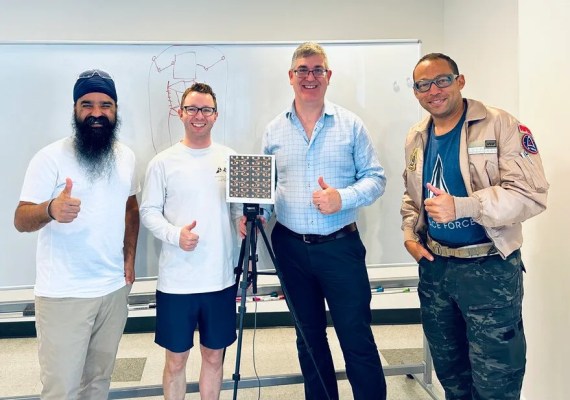Advanced manufacturing startup Orbital Composites is teaming up with Virtus Solis Technologies to conduct a space-based solar power demonstration as soon as 2027.
The two companies say the mission will be a precursor to an in-space “megawatt-class” solar power installation by 2030, which could mark “a new chapter in renewable energy.”
Space-based solar power (SBSP) is not a new idea; the sun emits more energy than humans could possibly use at the point it reaches Earth, and much of this energy is reflected back into space. As opposed to solar power collected on the planet’s surface, which is subject to the day-night cycle and other limitations, like land use, SBSP proponents say they can provide continuous, abundant energy collection.
According to a press release from the two companies, it sounds like they have their work cut out for them. Solar panels for space are expensive, and the space-based power plant must eventually collect and transmit enough energy to make it square economically. The plan would not just demonstrate solar energy transmission, but also Orbital’s robotic in-space assembly capabilities, which come with their own suite of challenges.
But the vision is compelling, unlocking as it would a new source of abundant clean energy for Earth. Under the pilot, Virtus would deploy its 1.65-meter solar tiles in medium Earth orbit, which would then be robotically assembled into large arrays. The two companies are targeting a highly elliptical orbit called a Molniya orbit, which would keep at least one satellite in view of a ground station at all times.
After the solar power is collected, the spacecraft would covert it to microwaves, which would be transmitted to the ground. Once on the ground, it would be converted to electricity and available for transmission into the power grid or used directly.
“This collaboration is not just a milestone in renewable energy development; it’s a commitment to leveraging space technology for Earth’s sustainable future,” the companies said in a press release. “The success of the pilot plant will validate the practicality of SBSP as a reliable and perpetual energy source.”
